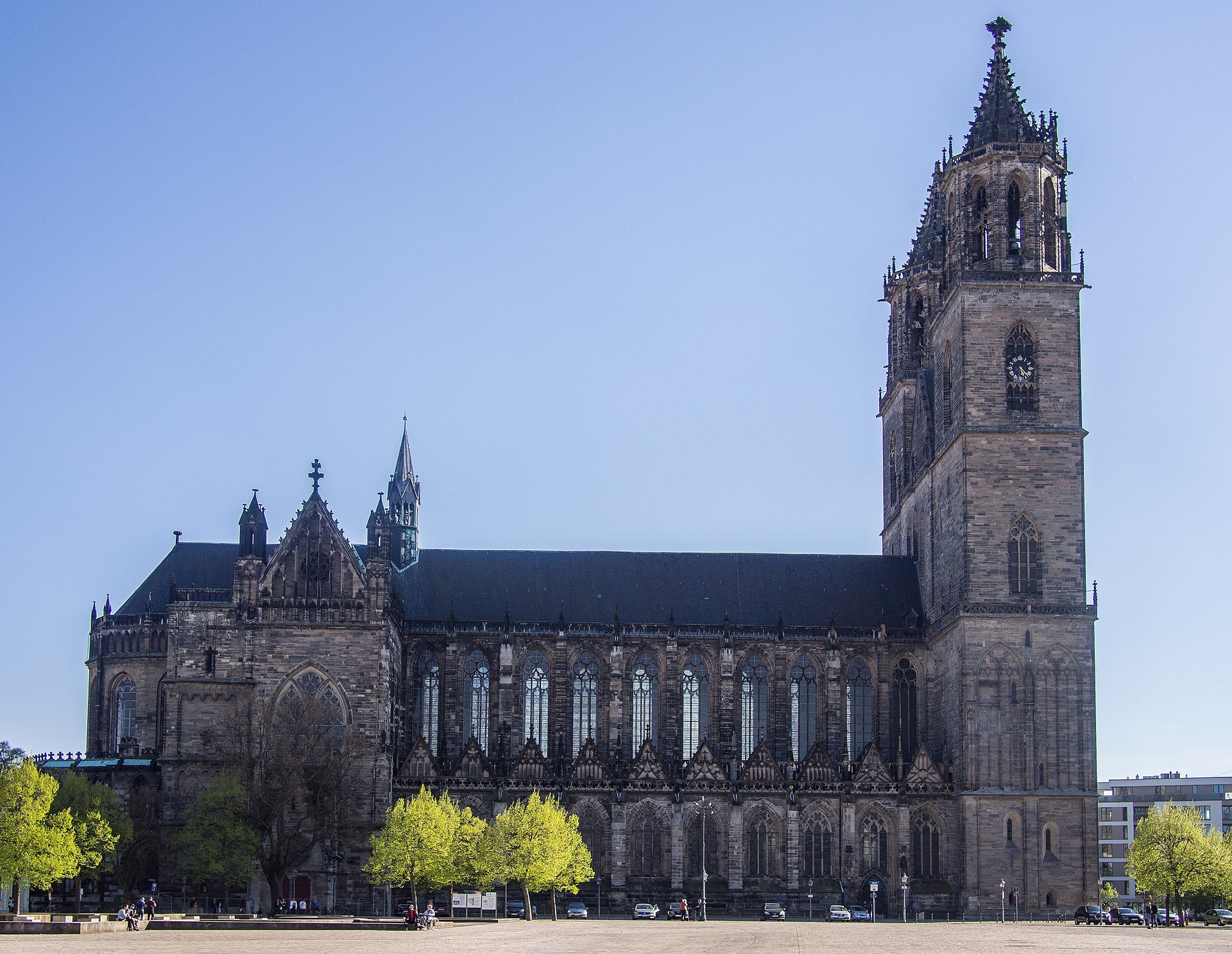On the Thursday after Holy Trinity…
The 1613 Cantica Sacra contains the services for the entire year in the Lutheran Magdeburg Cathedral. It is by all accounts a rather conservative liturgical work, though it does contain some surprises. First, the work provides Masses for every Sunday, Tuesday, and Thursday of the year. But if you turn in its pages to the Mass propers for the Thursday (Feria Quinta) after Holy Trinity, your Reformation eyebrows might raise a bit! For the Introit prescribed begins: Cibavit eos ex adipe frumenti… That is, He should have fed them also with the finest of the wheat, etc. Yes, that IS the opening of the traditional antiphon for (gasp!) the Feast of Corpus Christi.
The collect is the one we prayed on Trinity Sunday, but the epistle assigned the day is 1 Corinthians 11:23-29. This is followed immediately by St. Thomas Aquinas’ sequence hymn, Lauda Sion Salvatorem. But note that this particular sequence has been altered slightly:
Dogma datur christianis,
quod in carnem transit panis,
et vinum in sanguinem.
[A teaching given to Christians,
That the bread is changed into flesh,
And the wine into blood.]
In now rendered:
Dogma sacrum Christiano,
Quod cum pane datur caro,
Et cum vino sanquis Christi.
[A sacred Christian teaching,
That with the bread is given flesh,
And with the wine the blood of Christ]
Skating clear of the doctrine of Transubstantiation as is also apparent with this alteration:
Sub diversis speciebus,
Signis tantum, et non rebus,
Latent res eximiae:
[Beneath different species
Only signs and not the thing itself,
Hidden the thing extraordinary]
This becomes:
Sub diversis elementis,
Pane et vino, retentis,
Latent res eximiae:
[Beneath different elements,
Bread and wine, remaining,
Hidden the thing extraordinary]
Quite sensible changes all. One really wouldn’t want to contradict Pope St. Gelasius, would one? As he very clearly taught: Certainly the sacraments of the body and blood of Christ are a divine thing, through which we are made partakers of the divine nature; and yet the substance or nature of bread and wine does not cease to be. -- Pope Gelasius De duabis nature. In Chr. Adv. Eutych. Et Nestor. Patrology IV, 1:422 Or maybe even more to the point, one wouldn’t want to contradict the Apostle St. Paul who speaks of the bread that we break as being the communion of the body of Christ (1 Cor. 10:16).
The Gospel assigned in John 6:55-58! Wait, I thought that John 6… Oh, well, never mind.
Does this imply that the old Lutherans of Magdeburg winked at the abuses of Corpus Christi? By no means! I think you may rest assured that on that day, when the Church was accustomed to think about the Eucharist, the papal doctrine would be set forth and shown to be in error from the Sacred Scriptures; the whole matter of extra usum would be dealt with; and the true and joyous proper use of the Supper would be taught to the people, who would come to the altar to receive that bread which is the communion of the Lord’s body and that wine which is the communion of the Lord’s blood, and singing heartily Gott sei gelobet und gebenedeit! O Lord, we praise Thee, bless Thee, and adore Thee! After all, “no one—unless he is an Arian heretic—can and will deny that Christ Himself, true God and man, is truly and essentially present in the Supper. Christ should be adored in spirit and in truth in the true use of the Sacrament, as He is in all other places, especially when His congregation is assembled.” (FC SD VII:126)




